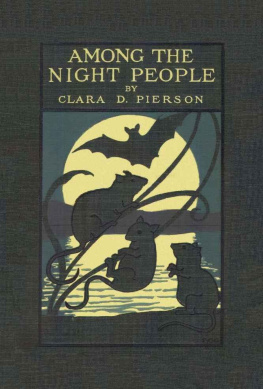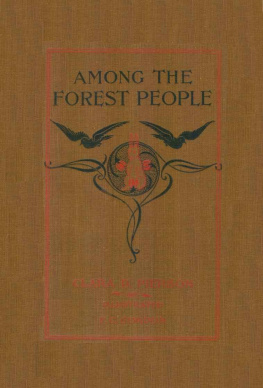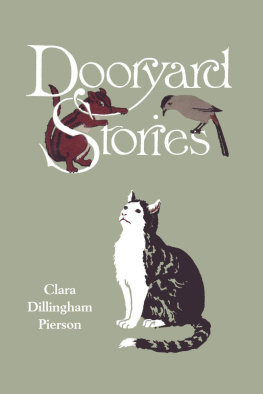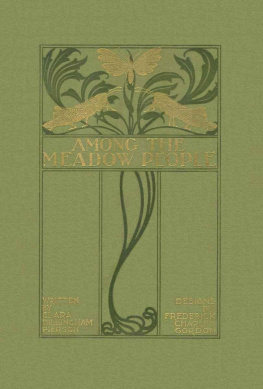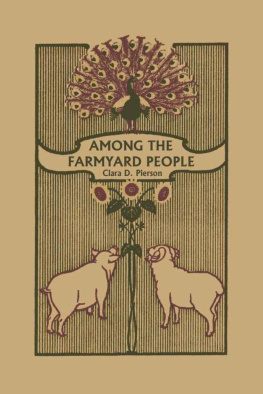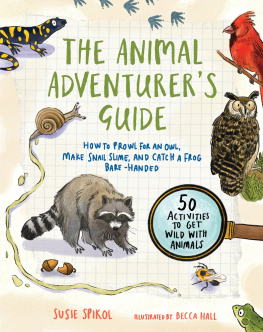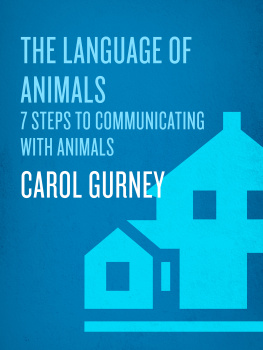Clara Dillingham Pierson - Among the Night People
Here you can read online Clara Dillingham Pierson - Among the Night People full text of the book (entire story) in english for free. Download pdf and epub, get meaning, cover and reviews about this ebook. year: 2005, publisher: Yesterdays Classics, genre: Home and family. Description of the work, (preface) as well as reviews are available. Best literature library LitArk.com created for fans of good reading and offers a wide selection of genres:
Romance novel
Science fiction
Adventure
Detective
Science
History
Home and family
Prose
Art
Politics
Computer
Non-fiction
Religion
Business
Children
Humor
Choose a favorite category and find really read worthwhile books. Enjoy immersion in the world of imagination, feel the emotions of the characters or learn something new for yourself, make an fascinating discovery.
- Book:Among the Night People
- Author:
- Publisher:Yesterdays Classics
- Genre:
- Year:2005
- Rating:3 / 5
- Favourites:Add to favourites
- Your mark:
- 60
- 1
- 2
- 3
- 4
- 5
Among the Night People: summary, description and annotation
We offer to read an annotation, description, summary or preface (depends on what the author of the book "Among the Night People" wrote himself). If you haven't found the necessary information about the book — write in the comments, we will try to find it.
Clara Dillingham Pierson: author's other books
Who wrote Among the Night People? Find out the surname, the name of the author of the book and a list of all author's works by series.
Among the Night People — read online for free the complete book (whole text) full work
Below is the text of the book, divided by pages. System saving the place of the last page read, allows you to conveniently read the book "Among the Night People" online for free, without having to search again every time where you left off. Put a bookmark, and you can go to the page where you finished reading at any time.
Font size:
Interval:
Bookmark:
All rights reserved. No part of this book may be reproduced or retransmitted in any form or by any means without the written permission of the publisher.
This edition, first published in 2010 by Yesterday's Classics, an imprint of Yesterday's Classics, LLC, is an unabridged republication of the work originally published by E. P. Dutton and Company in 1902. This title is available in a print edition (ISBN 978-1-59915-020-8).
Yesterday's Classics republishes classic books for children from the golden age of children's literature, the era from 1880 to 1920. Many of our titles are offered in high-quality paperback editions, with text cast in modern easy-to-read type for today's readers. The illustrations from the original volumes are included except in those few cases where the quality of the original images is too low to make their reproduction feasible. Unless specified otherwise, color illustrations in the original volumes are rendered in black and white in our print editions.
M Y D EAR L ITTLE F RIENDS:You can never guess how much I have enjoyed writing these stories of the night-time, and I must tell you how I first came to think of doing so. I once knew a girland she was not a very little girl, either,who was afraid of the dark. And I have known three boys who were as brave as could be by daylight, but who would not run on an errand alone after the lamps were lighted. They never seemed to think what a beautiful, restful, growing time the night is for plants and animals, and even for themselves. I thought that if they knew more of what happens between sunset and sunrise they would love the night as well as I.
It may be that you will never see Bats flying freely, or find the Owls flapping silently among the trees without touching even a twig. Perhaps while these things are happening you must be snugly tucked in bed. But that is no reason why you should not be told what they do while you are dreaming. Before this, you know, I have told you more of what is done by daylight in meadow, forest, farmyard, and pond. It would be a very queer world if we could not know about things without seeing them for ourselves, and you may like to think, when you are going to sleep, that hundreds and thousands of tiny out-of-door people are turning, and stretching, and going to find their food. In the morning, when you are dressing in your sunshiny rooms, they are cuddling down for a good day's rest.
I think I ought to tell you that I have not been alone when writing these stories. I have often been in the meadow and the forest at night, and have seen and heard many interesting things, but my good Cat, Silvertip, has known far more than I of the night-doings of the out-of-door people. He has been beside me at my desk, and although at times he has shut his eyes and taken Cat-naps while I wrote, there have been many other times when he has taken the pen right out of my hand. He has even tried running the typewriter with his dainty white paws, and he has gone over every story that I have written. I do not say that he has written any himself, but you can see that he has been very careful what I wrote, and I have learned a great deal from him that I never knew before. He is a very good and clever Cat, and if you like these stories I am sure it must be partly because he had a paw in the writing of them.
Your friend,
C LARA D. P IERSON.
S TANTON, M ICHIGAN,
April 15th, 1901.

W HEN the Speckled Hen wanted to sit there was no use in trying to talk her out of the idea, for she was a very set Hen. So, after the farmer's wife had worked and worked, and barred her out of first one nesting-place and then another, she gave up to the Speckled Hen and fixed her a fine nest and put thirteen eggs into it. They were Black Spanish eggs, but the Speckled Hen did not know that. The Hens that had laid them could not bear to sit, so, unless some other Hen did the work which they left undone, there would have been no Black Spanish Chickens. This is always their way, and people have grown used to it. Now nobody thinks of asking a Black Spanish Hen to sit, although it does not seem right that a Hen should be unwilling to bring up chickens. Supposing nobody had been willing to bring her up?
Still, the Black Spanish Hens talk very reasonably about it. "We will lay plenty of eggs," they say, "but some of the common Hens must hatch them." They do their share of the farmyard work, only they insist on choosing what that share shall be.
When the Speckled Hen came off the nest with eleven Black Chickens (two of the eggs did not hatch), she was not altogether happy. "I wanted them to be speckled," said she, "and not one of the whole brood is." That was why she grew so restless and discontented in her coop, although it was roomy and clean and she had plenty given her to eat and drink. She was quite happy only when they were safely under her wings at night. And such a time as they always had getting settled!
When the sunbeams came more and more slantingly through the trees, the Chickens felt less and less like running around. Their tiny legs were tired and they liked to cuddle down on the grass in the shadow of the coop. Then the Speckled Hen often clucked to them to come in and rest, but they liked it better in the open air. The Speckled Hen would also have liked to be out of the coop, yet the farmer kept her in. He knew what was best for Hens with little Chickens, and also what was best for the tender young lettuce and radishes in his garden.
When the sun was nearly down, the Speckled Hen clucked her come-to-bed cluck, which was quite different from her food cluck or her Hawk cluck, and the little Black Chickens ran between the bars and crawled under her feathers. Then the Speckled Hen began to look fatter and fatter and fatter for each Chicken who nestled beneath her. Sometimes one little fellow would scramble up on to her back and stand there, while she turned her head from side to side, looking at him with first one and then the other of her round yellow eyes, and scolding him all the time. It never did any good to scold, but she said she had to do something, and with ten other children under her wings it would never do for her to stand up and tumble him off.
All the time that they were getting settled for the night the Chickens were talking in sleepy little cheeps, and now and then one of them would poke his head out between the feathers and tell the Speckled Hen that somebody was pushing him. Then she would be more puzzled than ever and cluck louder still. Sometimes, too, the Chickens would run out for another mouthful of cornmeal mush or a few more drops of water. There was one little fellow who always wanted something to drink just when he should have been going to sleep. The Speckled Hen used to say that it took longer for a mouthful of water to run down his throat than it would for her to drink the whole panful. Of course it did take quite a while, because he couldn't hurry it by swallowing. He had to drink, as all birds do, by filling his beak with water and then holding it up until the last drop had trickled down into his stomach.
When the whole eleven were at last safely tucked away for the night, the Speckled Hen was tired but happy. "They are good children," she often said to herself, "if they are Black Spanish. They might be just as mischievous if they were speckled; still, I do wish that those stylish-looking, white-eared Black Spanish Hens would raise their own broods. I don't like to be hatch-mother to other Hens' chickens." Then she would slide her eyelids over her eyes, and doze off, and dream that they were all speckled like herself.
Font size:
Interval:
Bookmark:
Similar books «Among the Night People»
Look at similar books to Among the Night People. We have selected literature similar in name and meaning in the hope of providing readers with more options to find new, interesting, not yet read works.
Discussion, reviews of the book Among the Night People and just readers' own opinions. Leave your comments, write what you think about the work, its meaning or the main characters. Specify what exactly you liked and what you didn't like, and why you think so.

